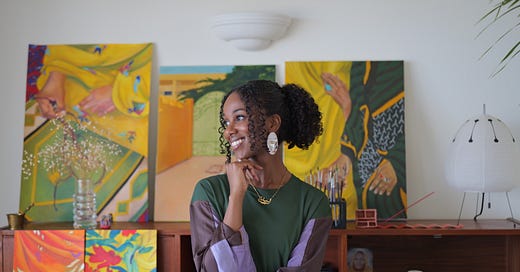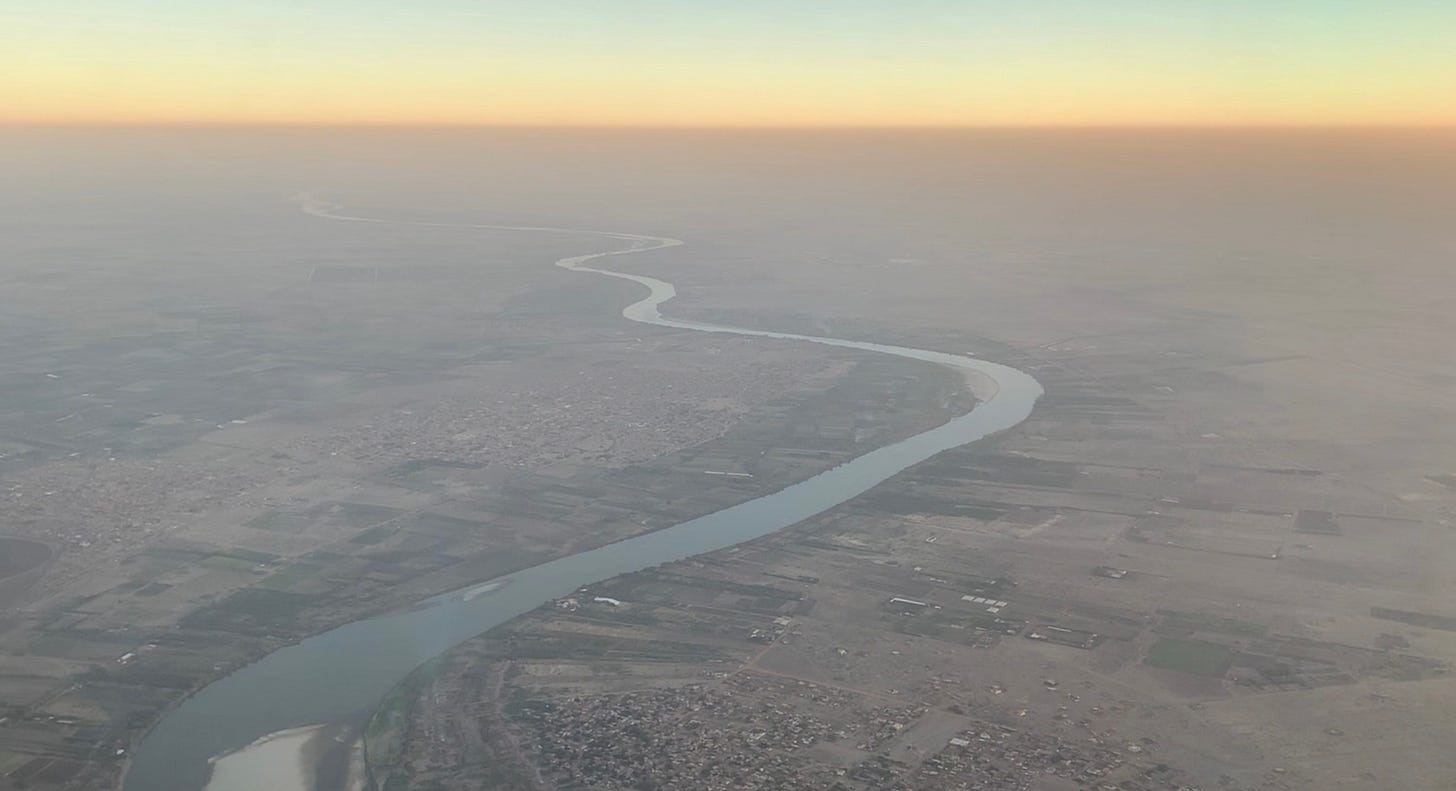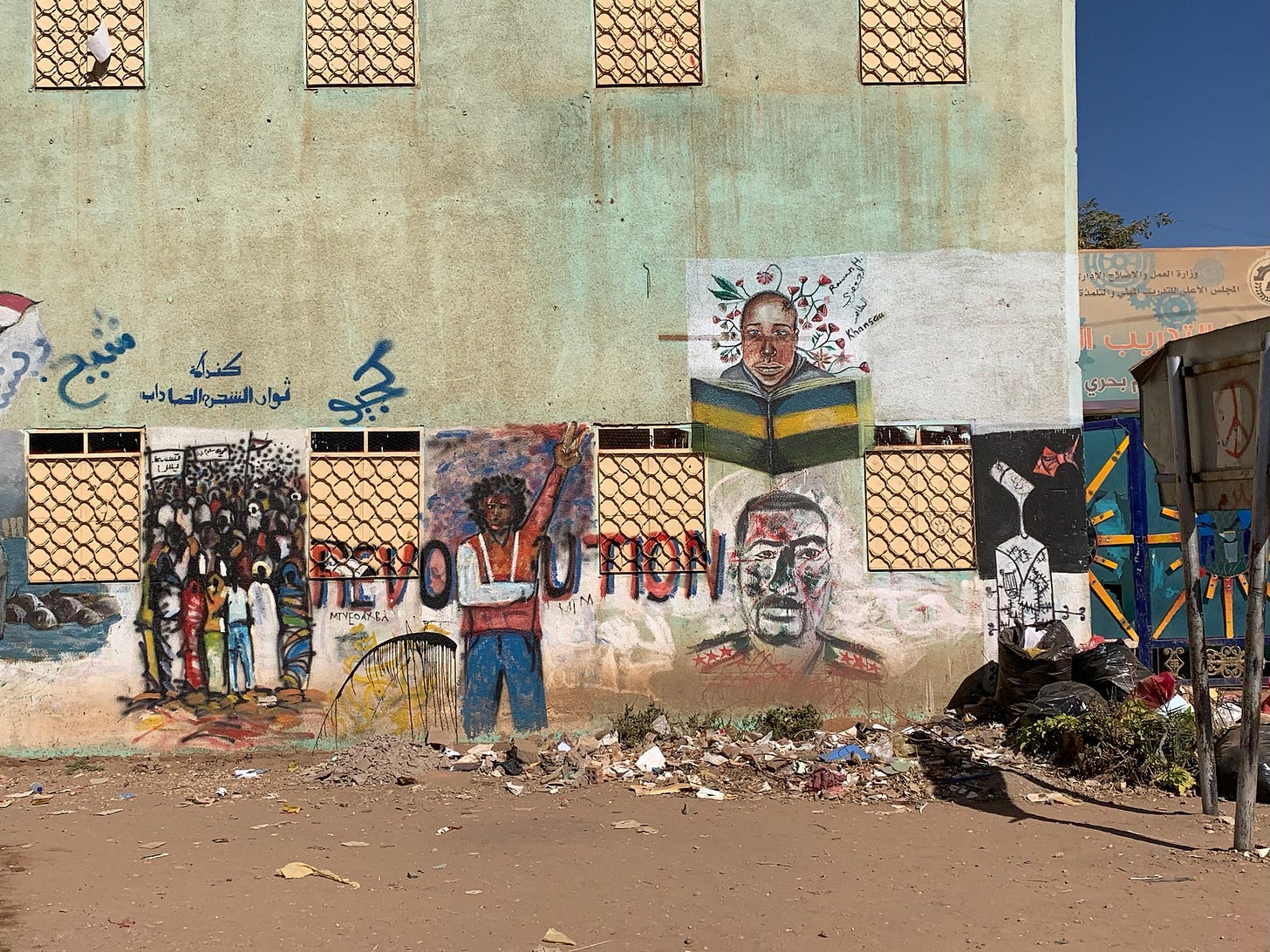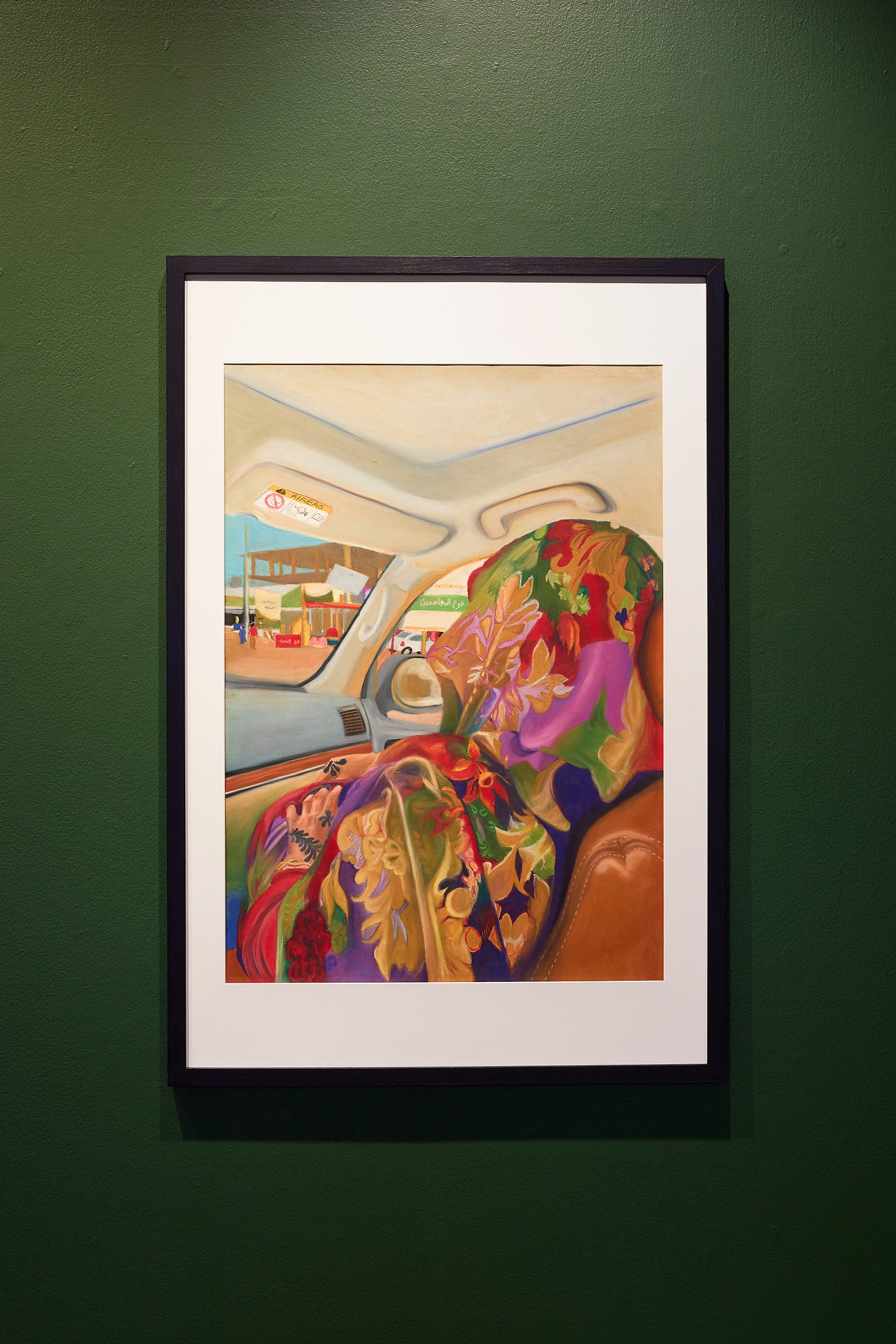The Last Trip.
A typical trip to Sudan for my family is about 7 - 10 days long. The schedule, always curated skillfully in order of priority by my mother, is a masterclass in efficiency. The days are comprised of short visits to family and each trip includes around 3 weddings (each made up of 2-3 distinct ceremonies). In these ways, my last trip to Sudan in December of 2019 was no different. This time, however, as our plane descended towards Khartoum and I looked down at the city, which sits at the confluence of the Nile, where the Great River splits into the Blue and White Rivers, I distinctly recall feeling divided myself: between a deep sense of loss, and equally, a renewed sense of connection. Loss because I didn’t know what a trip without the matriarchs of my Sudan would feel like. This was my first trip back since the loss of my maternal grandmother and aunt two years prior, with whom I had stayed during every trip to Sudan I had been on since the age of 12. A renewed sense of connection because I had spent so many months watching, sharing and writing about my people’s historic revolution on social media.
Those of us in diaspora had spent the better part of the year following the events closely and anxiously from afar as Sudanese civilians took to the streets in unprecedented million-man marches all over Sudan. After months of peaceful civil disobedience, the army had removed longtime dictator Omar Albashir, and established the Transitional Military Council (TMC), asserting 39 months of TMC rule prior to a handover of power to civilians. We watched as Sudanese civilians staged a peaceful sit-in on the military headquarters demanding a swift hand-over of power to a democratically elected civilian government.
For a time, the scenes coming out of Khartoum were stunning. A civilian-run camp of tents, equipped with food and drink stations, live music, and revolutionary murals painted on the walls of the city and sit-in grounds. At the heart of the protests were Sudanese women, who comprised around 70% of the participants.
These invigorating and empowering scenes came to a violent end when, on June 3rd, 2019 the military armed forces of the Transitional Military Council (TMC) headed by the Rapid Support Forces (RSF) stormed the sit-in and massacred the unarmed civilians present. An internet blackout followed that filled the diaspora with dread. Upon the restoration of the internet, harrowing footage and testimonies flooded social media. Scores of Sudanese were sexually assaulted, and hundreds of unarmed civilians of all ages were killed. The stories of bodies that had been thrown into the Nile and surfaced over the days that followed the massacre haunted me for months.
Since April of 2023, Sudan has been in the throes of a civil war between the two generals who were largely responsible for the June 3rd massacre. It has grown to become one of the world’s largest and most urgent humanitarian crises today. Millions are internally displaced, and around 1.2 million have had to flee the country to other vulnerable countries in the region.
She is a Country
Despite all of this…Sudan is not war. Sudan is not Generals Himedti or Burhan. Or the RSF, or the SAF, or foreign interests, or a suffering economy.
When I think of Sudan, I think of the colour ochre - so brilliant across Sudan’s buildings, sand, gold, and tea. I think of hospitality and warmth. I think of sweetened shai, with cardamom, cloves, and a stick of cinnamon. I think of syrupy, soft basboosa. I think of my mother’s bukhoor, and how she made barrels of it for my future home during my wedding preparations.
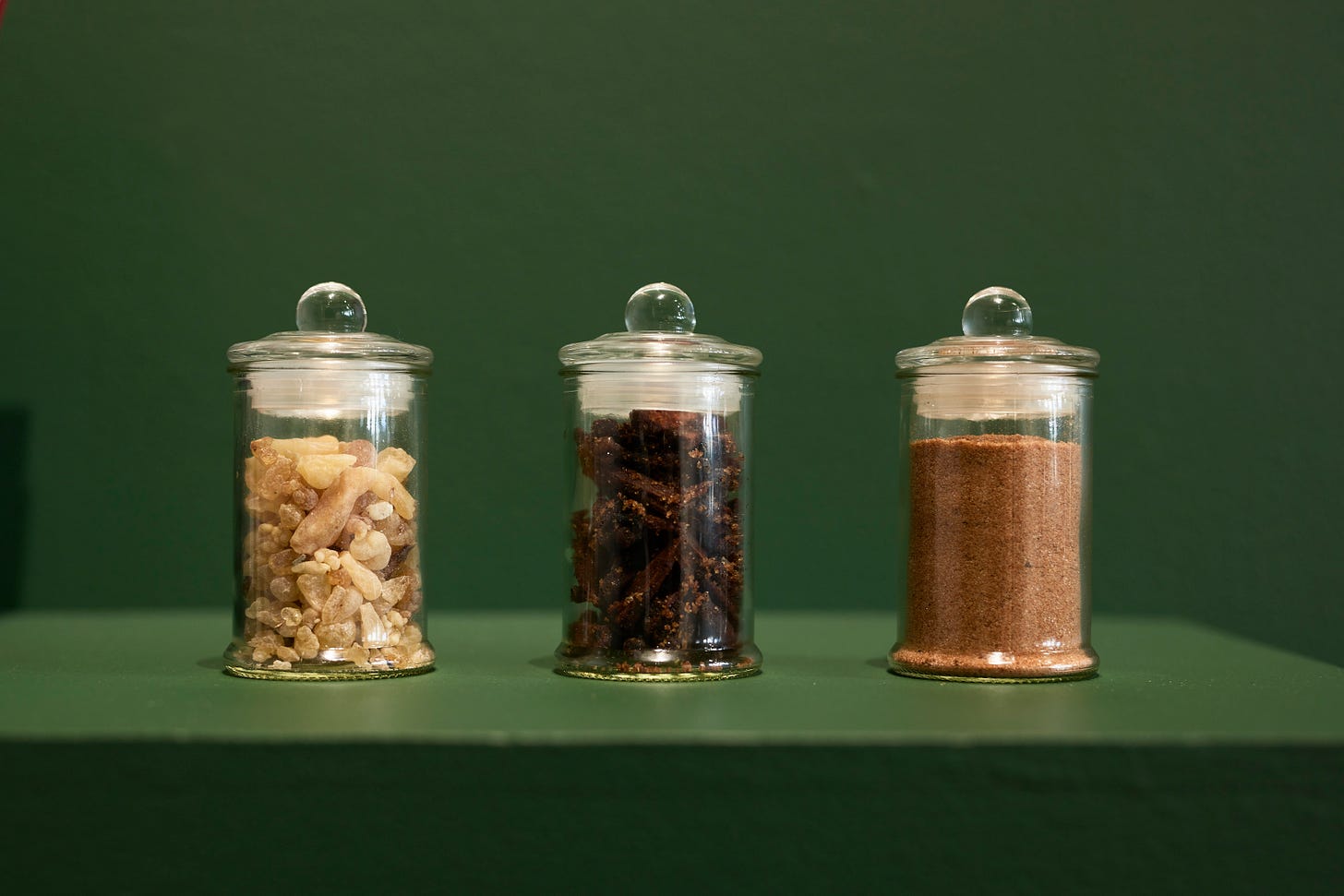
I think of her sitting in the passenger seat pointing out the sites as we are driven through Khartoum. I think of the traditional skincare rituals my aunt lives by. I think of the perfumes my other aunt is known for. I think of the joyous full bellied laughter of a handful of women in a room lying on anagreeb during wedding season, their legs outstretched with bold, fresh henna designs wrapping around them in our preferred shade of black.
I think of my grandmother in bed, her dark hair parted down the middle, brushed smooth and shiny and gathered in one delicate plait on either side of her head, carefully curled around her ears from the front, as was the fashion in the years of her youth. I think of her hands moving deceptively fast over lacquered wooden prayer beads, and her lips moving soundlessly so that I can only hear their rhythmic parting, and as she catches my eye, I think of how her cheekbones would fill with a cheeky smile.
I think of my mother, doing the same, all these years later, striking a welcome and uncanny resemblance to her mother.
When I think of Sudan, I think of all these women and more, and how for years I have been in mourning, believing my last trip to Sudan to be my last trip to Sudan.
I think of how old Sudanese songs affectionately refer to Sudan by the woman’s name Azza. I think about how that makes perfect sense, because when I think of Sudan, my mind wanders to every Sudanese woman I know, and it becomes clear that as long as I know them, there is no last trip.
After all,
She is a Country.

